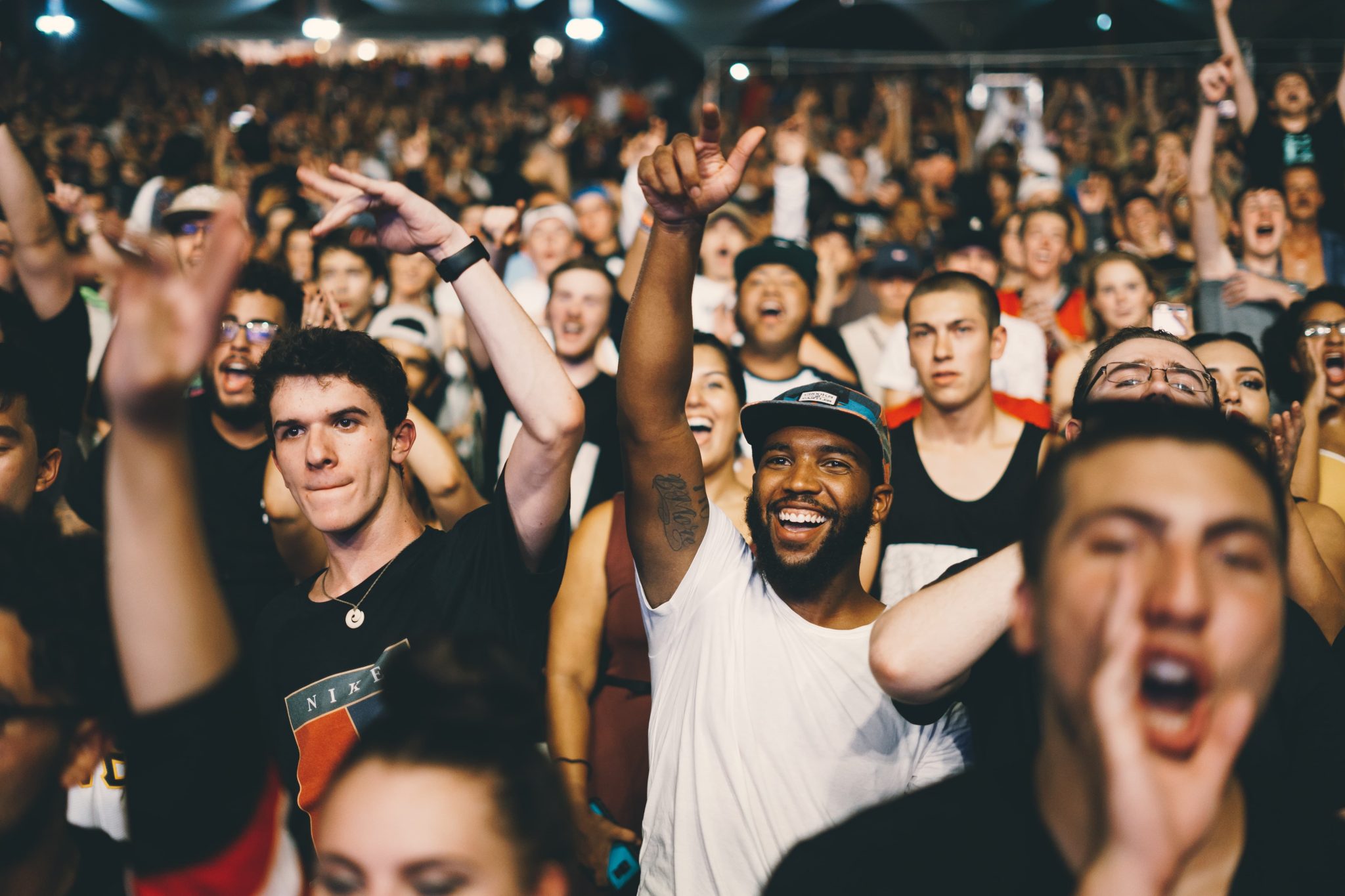Your Music Direction Coming From Your Community
The music industry, and more specifically the electronic music scene, has always thrived on the synergy between its creators and listeners. As an electronic music producer myself, I’ve come to realize that one’s journey to success often lies in understanding the pulse of the community. But what does that mean for the artists who feel disconnected, or those who gravitate towards genres with limited local support? Let’s delve into the heart of music communities and how they shape an artist’s journey.
The Role of Community in an Artist’s Growth
Having spent considerable time producing music and interacting with fellow musicians, a pattern emerges. Those producers who are part of an active music community tend to climb the ladder of success faster and more organically. It’s not just about having people to network with, but also about receiving immediate feedback, understanding what works and what doesn’t, and drawing inspiration from communal energy.
When you are plugged into a community, it’s akin to having your fingers on the pulse of the music you love. You not only learn about the intricacies of the genre but also understand what the audience desires. The shared knowledge and insights from a group of like-minded individuals can often be the difference between a track that falls flat and one that resonates deeply.
In my case, I quickly found my community of people loving the same music as me and got lucky there were events where everyone could meet. It was easy to connect and I felt quickly involved to it. One of the strength of this early boost was that I could present my music easily and got bookings organically. Nowadays I see people contacting venues for bookings but if you’ve never been to the venue, you will not know of it’s culture and direction. Going there is very important so you’ve seen and to see if the attendees are in the same mentality as yourself. There’s nothing more hard to play a gig where people don’t get what you do.
As I toured, I discovered bubbles of people in each city that reminded me of my local community. Even physically, I’d meet someone who reminded me of someone back home.
The Challenge of Non-Local Genres
But what about those producers who are passionate about a genre that isn’t prominent in their local surroundings?
Many artists look outward, connecting with labels or online groups that share their passion. While the internet has bridged many gaps, online connections often lack the depth and warmth of personal interactions. The very nature of digital communication can sometimes render these relationships impersonal.
There are people who live in smaller towns or aren’t close to a bigger city and this can be challenging because locally, there might be no chances of creating a community. How does this work?
Artists may produce exceptional tracks, but the age-old adage holds: people tend to support who they know. A community can sometimes be hesitant to welcome outsiders. This protective approach is natural, but it can inadvertently close doors for new talents who could have infused fresh perspectives and sounds. No need to think of labels who receive music from people they never heard of and those people expect them to reply. In the best of worlds, this would happen but in reality, this doesn’t happen much. It leaves artists confused.
So for people who aren’t well musically supported, there are multiple choices possible. One of them is to try to go to the closest place where there are events and a community to enjoy it as well as the music. Eventually you may find your role and space in that tribe. Then afterwards, using online communication tools maintain contact.
Let’s not forget that building your own local network and community is possible but can be challenging at first.
The DJ Solution
In such scenarios, one strategy that I’ve seen work is reaching out to DJs.
Why DJs?
Because they hold the power to introduce new tracks to an eager audience. DJs are always on the lookout for the next standout track, and they can be instrumental in helping an outsider’s music get the recognition it deserves. Having a DJ play your music can be the perfect bridge between the artist and a new community. You could also do the same with local restaurants or boutiques where you can ask them to play your music sometimes, but of course, you’ll need to do that in person after showing you care about their place and music tastes.
Also DJs love music for podcasts and that is a good way to breakthrough to a new bubble of people.
Building Inclusive Communities for a Vibrant Future
As we discuss communities and their importance, it’s also essential to talk about inclusivity. While protecting the integrity of a community is necessary, it’s equally vital to ensure it doesn’t become insular. By welcoming new members and being receptive to their unique musical offerings, a community not only adds to its diversity but also ensures its longevity.
To all the music communities out there: let’s remember that today’s outsider could be tomorrow’s trendsetter. By being open to new members and their distinct sounds, we guarantee that our community remains vibrant, fresh, and future-ready. Outsiders will bring new energy and ideas what will make sure the music won’t fall in the equivalent of an echo-chamber where everything sounds the same after a while.
Ideas to Discover and Connect with Music Communities:
- Local Music Stores and Cafes: These places often have bulletin boards with events, gatherings, or workshops. Even chatting with the store owner or regulars can lead you to local music groups.
- Music Workshops and Masterclasses: Enrolling in or attending these can introduce you to like-minded artists and instructors who can guide you to relevant communities.
- Music Festivals and Gigs: Attend local and regional festivals. Even smaller gigs can be goldmines for networking. Often, they are organized or attended by people who are part of music communities.
- Online Platforms: Websites like Meetup.com or Facebook groups often have local music groups where you can join and participate in discussions or events.
- Community Centers and Universities: Many of them offer music courses and often have active music clubs. Engaging with these can open doors to local music communities.
- Music Production Forums: Websites such as Gearslutz or KVR Audio have active forums where producers from around the world discuss music, equipment, and events.
- Collaborate Online: Platforms like SoundCloud, Bandcamp, or Splice can be great places not just to share your music but to collaborate with others, which can organically introduce you to communities.
- Attend Open Mic Nights: These nights often attract local musicians and enthusiasts. It’s a relaxed environment to meet people and get feedback on your music.
- Visit Recording Studios: Interacting with studio managers or technicians can give insights about local musicians and communities they work with.
- Engage with DJs: As mentioned before, DJs have their fingers on the pulse of music communities. Engaging with them can often lead to introductions to these communities.
Closing Notes: A Call to Artists
To my fellow artists feeling a tad adrift, remember that every community started small. If there isn’t a community for your genre, consider starting one! And if that seems like a monumental task, don’t hesitate to reach out in person. Attend local gigs, music events, or even workshops. Establishing a face-to-face connection can be more impactful than a dozen online interactions.
In the ever-evolving landscape of electronic music, one thing remains constant: the value of connection. So, whether you’re an artist seeking your tribe or a community member wondering about the next step, remember that it’s through inclusivity, understanding, and personal interactions that we’ll continue to thrive and create harmonious symphonies for the world to enjoy.
Keywords: electronic music, music production, community, DJ, networking, inclusivity, artists, local gigs, music events.


 I’ve recently been wondering what will be the future for labels. Are streaming services replacing labels? Or are other communities? I’ve been running my label
I’ve recently been wondering what will be the future for labels. Are streaming services replacing labels? Or are other communities? I’ve been running my label  The great thing about this initiative was that people started to really participate and interact, even more than I thought they would. It was pretty amazing to see some people join forces and collaborate, and to see others help out by giving advice with regards to where to send music to get signed. This community has become autonomous; it’s doing what I was doing myself before, through email. I’ve been thrilled by it!
The great thing about this initiative was that people started to really participate and interact, even more than I thought they would. It was pretty amazing to see some people join forces and collaborate, and to see others help out by giving advice with regards to where to send music to get signed. This community has become autonomous; it’s doing what I was doing myself before, through email. I’ve been thrilled by it!